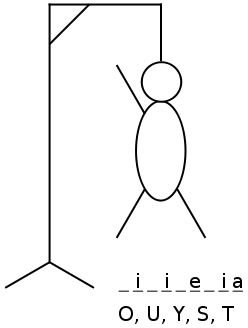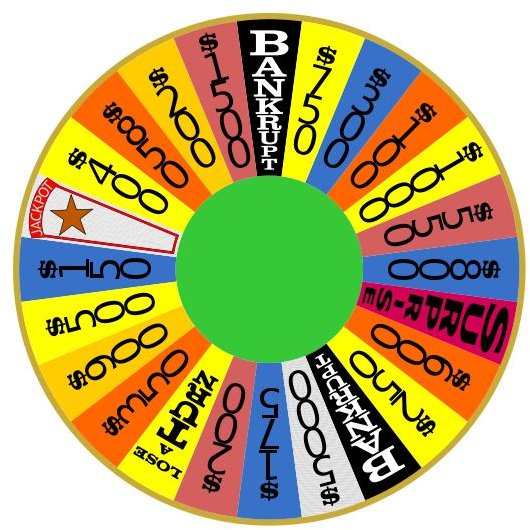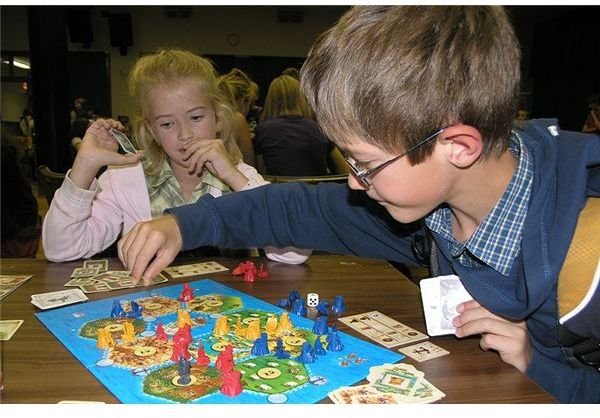Elementary Vocabulary Games to Review Words
Play and Learn
Thinking of an interactive and effective way to teach vocabulary to your fourth grade students? Let them play a variety of paired or
group games that they will surely love. Here are some vocabulary games that will allow students to brainstorm, analyze, simulate, or draw as they learn new words - the enjoyable way.
**Jeopardy
**
This classic trivia game on TV can be tailored-fit according to your topic. You may incorporate the use of context clues as you present a trivia question with an unfamiliar word in the same sentence. Let the students answer the trivia first (they love questions that appeal to their interests), then ask them to give the meaning of the unfamiliar word. With this strategy you’re shooting two birds with one stone - they enrich their vocabulary by using context clues, and they get to broaden their knowledge on general information topics as they answer the trivia questions. There are plenty of Jeopardy Game templates available on the Web.
Pictionary
This game allows students to remember or learn new words by visualizing how the definition can be put into sketches, thus helping them grasp a clearer understanding of the concept. The class may be divided into two groups, and a representative for each group draws pictures that illustrate the word. His or her group mates try to guess the word by studying the drawings, and they also give the meaning of the word.
Who Wants to be a Millionaire?
This is another famous game on TV that can be adopted in teaching vocabulary. In this game, the unfamiliar word is used in a sentence, and the students make use of context clues to find the meaning of the word. This can be played in class by dividing them into two groups. A buzzer is provided for each group in order to signal which contestant is granted the chance to state the answer. As each student successfully answers the questions, the number of points (represented as money) also increases. The ultimate goal of each player is to get a million dollars in order to win the game. There are downloadable Who Wants to be a Millionaire Game templates found on the Web.
Charades
After learning a set of new words, the students may play this game to recall their definitions. The class is divided into two groups, and a representative is chosen by each group to act out the words from their vocabulary list. It is not enough that they have memorized the words in the list; they must also be able to visualize and act out each word for better retention. This game appeals to visual and kinesthetic learners.

Hang Man
This game that is quite similar to the classic TV game show One Million Dollars Chance of a Lifetime. This may be used in teaching vocabulary by presenting blank for each letter, and the students have to guess the letters that are found in the mystery word. To help the students guess the letters (and eventually, the word), clues are given after uncovering each letter. These clues may be a word or a phrase that is associated with the hidden word. For instance, the hidden word is conjure. After a letter is uncovered, you may show a clue such as ‘to call forth’ or ‘magician’. This is a fun game that the students will surely enjoy playing.
Crossword Puzzle
This is a good paired activity for the students to recall or learn new words. You may design your own crossword puzzle, print it out, and have it reproduced for your students. As they answer each item, they also get to review the spelling of each word when they check if its letters would fit in the boxes.
Wheel of Fortune

Another classic game show on TV, Wheel of Fortune may be used in playing vocabulary games. Prepare eight index cards with vocabulary used in sentences. Number each card 1-8. Then, divide the class into two groups. Assign a number for each student in the group.This will define who each student is competing against (e.g, student 1 in group A is against student 1 in group B, and so on). Click “spin” on the PowerPoint slide. And if it lands on a particular number, ask the question found in the index card that corresponds to the number where the arrow in the “wheel” has landed.
Word Search
This game is ideally played with a partner. Make a list of all the words that you want to review with your students. Then, use Microsoft Excel to put random letters in the boxes. Be sure to devise a way that the hidden words are arranged vertically, horizontally, and diagonally. Only the definitions of each word are found below the grid, and it is up to the students to figure out the word that they are searching for by using the definitions as clues. This is a good exercise for the students to develop a keen eye as they critically study the possible location of the word they are searching for.
Tic-Tac-Toe (with a twist!)
This game of X’s and O’s can be turned into a word game by simply presenting a sentence with an unfamiliar word for the students to unlock the meaning of. After they have correctly figured out the definition, they may plot their X or O on the board. The same rule applies in this game - a team who has successfully plotted their X or O in three boxes arranged horizontally, vertically, or diagonally wins the game. Hence, the students get to practice decoding the meaning of words using context clues, and they also learn to strategize in order to win the game.
Riddle Handouts
This is a good paired game to sharpen their logical skills. Compose riddles and insert in the sentences the vocabulary found in their word list. Then, reproduce the copies so each pair can work on solving the riddle and decoding the meaning of the underlined vocabulary word. This is a fun game for those who love to solve riddles.
References
- Free Jeopardy Game: http://www.superteachertools.com/jeopardy/
- Photo courtesy of WikiCommons
- Power Point Games: http://jc-schools.net/tutorials/ppt-games/
